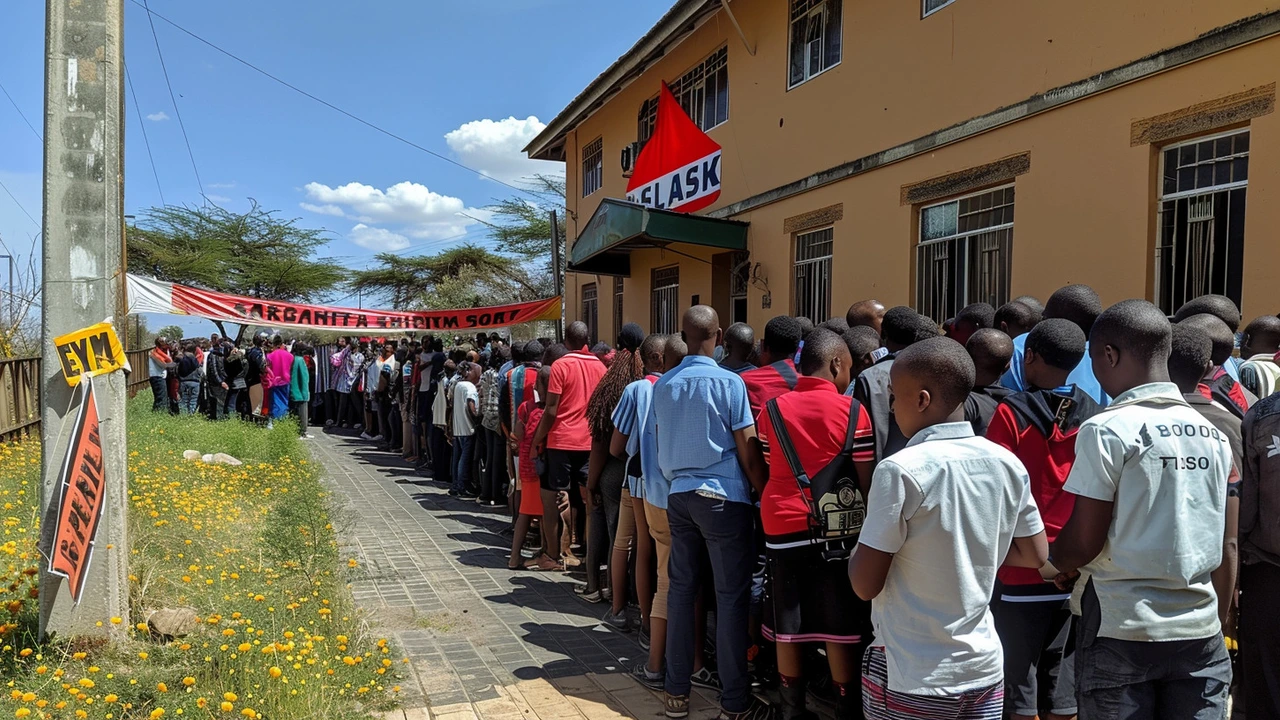
Parents Seek Judicial Intervention Against Fee Hike at St Bakhita Schools
In an unfolding drama that has put educational costs at the forefront, over 1,000 parents from St Bakhita Schools in Nairobi are taking legal action against the school management over what they describe as sudden and unfair fee increments. The parents are crying foul over the lack of adequate notice given for the adjustments, arguing that the steep increases leave them scrambling to adjust their budgets and find alternative schooling options if needed.
The Fee Increment Details
Details from the case reveal that the management has announced significant increases: up to 40% for transportation services, 20% for tuition, and between 20% to 40% for co-curricular activities. These changes were communicated with just a three-week notice, a timeline parents claim is unreasonable and debilitating. Tokens of trust built over years between parents and the school seem strained, and the urgency parents feel as a result of not being given enough time to adjust to the new fees adds fuel to the fire.
Financial Strain on Families
With the abrupt fee hike, many parents feel caught off guard and stressed about how to manage the additional financial burden. Nairobi, like many other cities, has already been grappling with inflation and rising living costs, making the timing particularly challenging for families. Parents argue that these increases impose harsh financial strains and push them towards undesirable decisions, such as taking loans or making significant sacrifices in other aspects of their lives.
School's Defense
On the other hand, the school management defends its decision by pointing to rising operational costs and inflation. They argue that the fee adjustments are necessary to maintain the quality of education and the range of services offered. According to the administration, without this increment, the school would struggle to cover its expenses, which include maintenance, administrative costs, and staff salaries, all of which have seen upward trends.
A Collective Outcry
The parents' collective action highlights the strength of their dissatisfaction, with over 1,000 signatories joining the lawsuit. Their combined voices emphasize that while the school may be facing its own financial difficulties, such drastic fee increments should be communicated more respectfully and within a reasonable timeframe. This would give parents enough leeway to make informed decisions about their children’s education.
Legal Proceedings
The matter now awaits judicial intervention, with the case scheduled to be heard on May 27. Parents are seeking an immediate court order to freeze the increments until a thorough review of the matter is completed. Many of them hope that the court will not only delay the hikes but also push the school to reconsider and perhaps revise the increments to a more manageable level.
Possible Outcomes and Implications
The decision of the court could set an important precedent for how private educational institutions manage financial changes and communicate such significant decisions to their stakeholders. If the parents win, it may compel other schools to adopt more transparent and considerate processes, ensuring that fee increments are reasonable and communicated well in advance. On the flip side, if the school’s decision is upheld, it might create a challenging environment for parents who feel their concerns around affordability are being sidelined.
Parents’ Concerns
The heart of the parents’ concerns lies in the principle of fairness and transparency. They assert that the drastic fee hike not only disrupts their financial planning but also jeopardizes their children’s educational continuity. Such uncertainty can cause undue stress for both parents and students, who are caught in the crossfire of financial equations and administrative decisions.
School’s Future Steps
If the court rules in favor of the parents, the school might have to seek other avenues to manage its finances. This could include cutting down on certain non-essential services, finding alternative funding, or even increasing student enrollment to balance the numbers. Whatever the outcome, the school will probably need to reassess its financial planning to avoid similar conflicts in the future.
Inflation and Educational Costs
This case also throws light on a broader issue—rising educational costs amidst inflation. As operational costs spike, schools across the country are facing pressure to hike fees, often putting them in a difficult spot with parents. Balancing quality education with affordability remains a significant challenge. Parents, on their part, feel the pinch as they try to afford quality education for their children, leading to increasing calls for regulatory oversight in the educational sector.
A Call for Dialogue
Ultimately, the situation at St Bakhita Schools highlights the necessity for better communication and cooperation between educational institutions and parents. While inflation and rising costs are undeniable realities, creating a more collaborative approach could help find balanced solutions that cater to both parties.
Conclusion
As both parents and the school await the court’s decision, the case underscores the importance of fairness, transparency, and mutual respect in managing educational costs. Parents emphasize that while they understand the pressures schools face, any financial decision affecting them requires timely communication and a considerate approach. For now, the educational community watches closely, anticipating the ruling that could influence future policies and practices in private schooling.